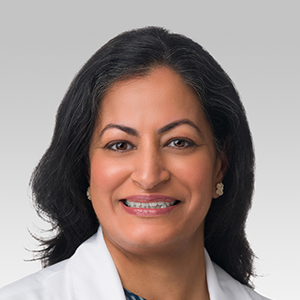What You Should Know About Cancer Screenings
Everyone’s Risk Is Different
Updated December 2022
Throughout your life, the cells in your body grow, divide and die before new cells are born. Sometimes, though, this process goes awry, and cells do not die as they should. When your cells continue making new ones and the old or abnormal cells don't die, this is known as cancer.
Cancer affects one in every three people in the United States, making it very possible that you or someone you know has had an experience with the disease.
"There is a lot of medical information out there that isn't complete or isn't accurate, and it can induce a lot of anxiety," explains Aarati D. Didwania, MD, a Northwestern Medicine internal medicine physician who cares for many cancer survivors as part of her regular practice and as director of Robert H. Lurie Comprehensive Cancer Center of Northwestern University’s STAR Program. The program is for adult survivors of childhood cancer at Northwestern Memorial Hospital.
By getting preventive care and your recommended screenings, you can help reduce your risk for cancer.
Getting Screened
It's important to continually have these conversations with your health care team.— Aarati D. Didwania, MD
The type of cancers you may be at risk for depend on numerous factors, and it is best to discuss your risk with a clinician that you respect and trust, explains Dr. Didwania.
When it comes to cancer risks, keep these two things in mind:
- There are population risks for types of cancer. For example, Black men in the U.S. are more likely to be diagnosed with and dying from prostate cancer than other men.
- There are individual, or unique risks for cancer. These can include environmental factors, as well as your family history, which can help inform your care team about your risk for certain cancers.
Based on your population risks and your unique risks, there are certain guidelines for cancer screenings. Depending on your health and family history, your care team may advise you to seek screening sooner or at another time.
Prioritizing Prevention
Seeking preventive cancer care may be intimidating, but it is important to your health and well-being. As your care team, your physician and their partners can help calm your fears and keep you aware of what you should look for.
Having a knowledgeable medical professional on your side is better than you worrying about what you might not know. Your clinicians understand what to look for and why they are looking for it.
"As physicians and scientists, we learn new things all the time, and cancer screenings fall into that realm," says Dr. Didwania. "Recommendations change and your individual risk changes, so it's important to continually have these conversations with your health care team."






